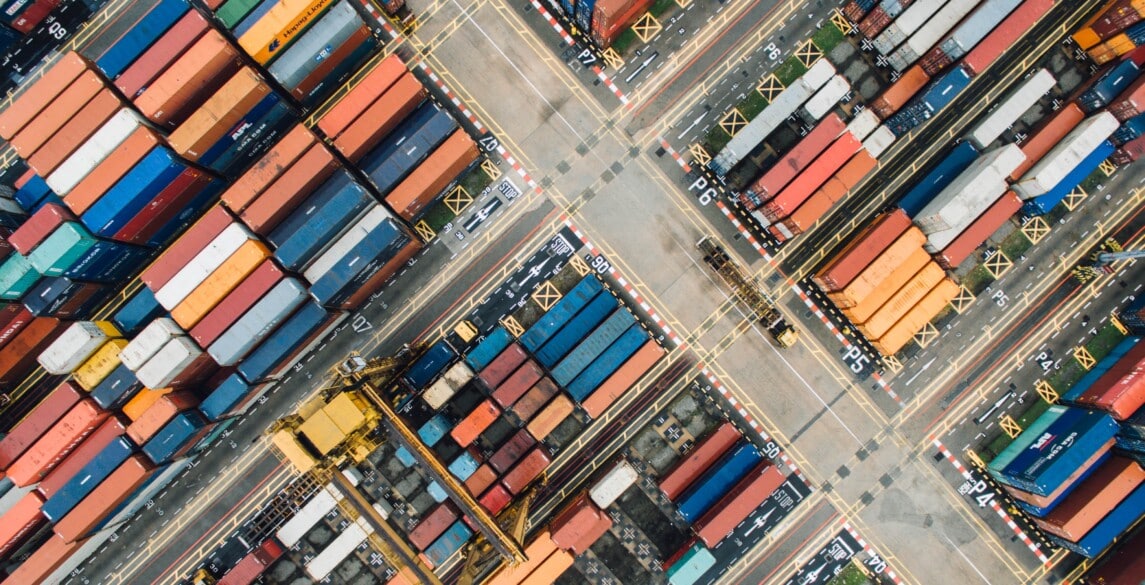3PL (Third Party Logistics): What It Is and How It Can Benefit You
For many companies, one of the best ways to handle complex supply chain needs is by using third-party logistics (3PL) services.

When it comes to logistics management, it’s critical your business’ supply chain is efficient, cost-effective and resilient. For many companies, one of the best ways to achieve this is by using third-party logistics (3PL) services.
What is 3PL?
Third-party logistics (3PL) is the outsourcing of logistics and supply chain management functions to an external provider. These companies serve as intermediaries between shippers and the final customer, providing specific services such as transportation, warehousing, freight forwarding and distribution. Not every organization has the capacity to manage all the functions needed for a resilient, optimized supply chain. By outsourcing logistics functions, businesses can focus on their core competencies, and in many cases, reduce costs by relying on a partner that is both more efficient and less prone to disruptions.
How Does 3PL Work?
3PL providers work with manufacturers, suppliers and carriers to coordinate the individual logistics functions within the supply chain. This coordination involves managing freight, warehousing inventory, arranging transportation and handling paperwork, and in the case of imports and exports, navigating customs clearance requirements.
Benefits of Using 3PL
As noted above, 3PLs provide several notable benefits to companies with an array of supply chain needs. In turn, these perks make the following benefits possible for organizations who utilize 3PL providers:
- Cost savings: By partnering with a 3PL provider, businesses can lower their logistics costs by outsourcing asset-intensive activities such as warehousing, transportation and inventory management.
- Flexibility: 3PL providers generally offer a range of services, from simple freight forwarding to more complex supply chain management. This flexibility allows businesses the ability to customize their logistics solutions to meet specific needs, rather than having to staff and manage everything in-house.
- Increased efficiency: With 3PL providers handling more complex or asset-intensive logistics functions, businesses can streamline their supply chain and improve efficiency.
- Mitigated risk: The right 3PL provider should understand your industry and be able to identify challenges and complications before they become an issue. Leveraging this collective expertise helps businesses avoid or minimize risks stemming from issues like regulatory compliance, transportation and supply chain disruptions.
Types of 3PL Providers
Final-Mile Providers
These providers specialize in the transportation of goods from a transportation hub to the final delivery destination, often the customer’s home. This phase of delivery is often the most complex, as it involves customer interaction and satisfaction. Final mile logistics is pivotal in e-commerce and home deliveries.
Warehousing Providers
Warehousing providers offer storage space for goods. This service may include inventory management, picking and packing orders and managing inbound and outbound shipments. They ensure goods are stored safely and efficiently, reducing the risk of damage and loss.
Asset-Based Providers
These providers own and operate their own assets, whether that’s trucks, warehouses or distribution centers. They have more control over their services and can provide comprehensive solutions. They’re particularly beneficial when consistency and reliability are paramount, such as in industries with strict compliance requirements.
Each type of 3PL provider offers unique benefits and services, ensuring that businesses can find a logistics solution that perfectly fits their needs.
Finding the Right 3PL Provider for Your Business
Selecting the right 3PL provider demands thoughtful consideration and evaluation. A 3PL provider should be able to tailor its services to meet your organization’s unique needs.
- Identify your needs: By definition, 3PLs offer specific functions, which will vary from provider to provider. Do you need warehousing, transportation, freight forwarding or all the above? Identifying your needs will help you narrow down potential 3PL providers.
- Evaluate their expertise: Does the 3PL provider have experience in your industry? Have they handled logistics operations similar to yours? Their expertise in handling certain types of goods, especially big and bulky items in the case of e-commerce, is paramount.
- Consider their assets: A 3PL provider with a robust network of assets to keep your supply chain moving, even in the event of heightened demand, weather events or other situations impacting your industry, is incredibly valuable.
How Hilldrup Does 3PL
3PL providers can help businesses improve logistics efficiency, reduce costs and mitigate supply chain risks. As a fourth-generation family-owned company, Hilldrup understand how important business continuity is to an organization’s operations and profitability. From 24/7 online inventory management to full-service warehousing, Receiving and Delivery (RAD) and final-mile services, Hilldrup has the expertise and assets to keep your business steadily moving forward. Learn how we can help by contacting us today.


